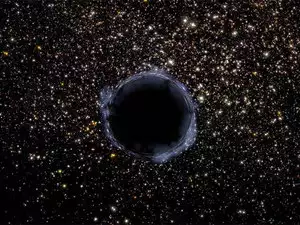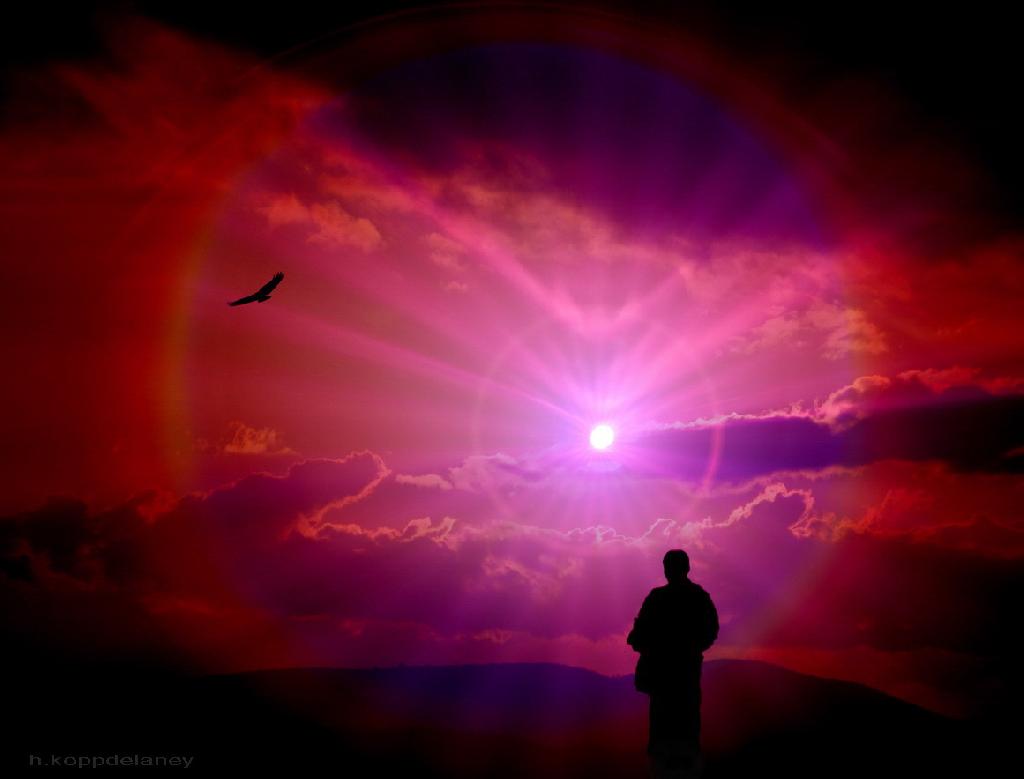What is our place in the universe as human beings? Can we find it by amassing knowledge and searching outwardly, or can we only find out by going within?
Technologists believe some friendly ET will tell us, or science will discover and communicate with life on other planets. But how can humans only join the ranks of intelligent species when we remain unintelligent ourselves?
These are no longer abstract philosophical and spiritual questions, but an increasingly urgent and practical inquiry, requiring enduring insight to light the way ahead through the Stygian darkness that man has made.
Human consciousness, as we’ve known it for tens of thousands of years, is becoming saturated with darkness. In some cultures, such as America’s globalizing culture, it already has reached the saturation point.
That doesn’t mean that there aren’t good people. Many small but significant acts of spontaneous kindness make a difference in people’s daily lives. But it has become imperative to be self-knowing, if only to not become a conduit for collective darkness.
We all have a darkside, whether we own it and are learning from it, or are suppressing and ignoring it and thereby growing it like fungi in a cave. What few people realize however is that darkness is not individual, but inextricably part of the totality of dark matter that is eclipsing, indeed suffocating the human heart.
Only goodness is truly individual. Darkness and evil are always essentially the same, and boring as hell, literally.
 Cosmologists now refer to “dark matter.” Though they don’t know what it’s made of and have not been able to observe it, they say it comprises a greater portion of the universe than all the matter and energy we know. In short, it’s a mathematical hypothesis for something they are admittedly ignorant about.
Cosmologists now refer to “dark matter.” Though they don’t know what it’s made of and have not been able to observe it, they say it comprises a greater portion of the universe than all the matter and energy we know. In short, it’s a mathematical hypothesis for something they are admittedly ignorant about.
The dark matter in human consciousness on the other hand is all too well known. It is an ever-increasing phenomenon, and in our age it has become synonymous with human consciousness.
The darkness in consciousness can be observed. And in correctly observing it within (without separation, judgment or analysis), it is transformed. Which is to say, we are transformed, and a new order of consciousness begins to emerge.
A cartoonist pens another scenario:
“If we kill ourselves off with our animal aggression or let ourselves die through callousness or greed, we will have betrayed those ancestors and countless descendants, and leave the universe blind and dumb again, unintelligible to itself. And then it’ll have to start over. Probably with the raccoons.”
This is what passes for philosophy in the mainstream media these days. Such anthropocentrism, which puts humans at the center of the universe, amounts to common narcissism.
If we kill ourselves off or let ourselves die as a species, does anyone actually believe that that will “leave the universe blind and dumb again?” Was the universe blind and dumb before man? And if humans extinguish themselves, is that it “for consciousness in this universe,” because we’re “the only game in town…as far as we know?”
The answers are contained in the questions themselves. Logically, the universe that evolved a brain with the potential for cosmic consciousness has evolved others, and is generative of consciousness. Consciousness is the warp and woof of the universe.
As far as being “the only game in town,” that’s about as provincial as it gets. If humans fail to make the transition to true consciousness, the universe will shed a tear (metaphorically speaking of course), and move on. Undoubtedly some experiments in consciousness succeed, and some fail. Homo sap is failing, but the fat lady hasn’t sung on us yet.
Clearly, darkness does not refer to the night, but to the blight in human consciousness. Turning within and owning it in ourselves, we will have no need for juvenile dreams of terraforming Mars and finding other earth-like planets for man to decimate and denude.
Order flows from the negation of thought, not the arrangement of thought. Emptiness is the ground of all being.
Transcending thought while advancing scientifically and technologically is what makes for an intelligent species in the universe.
Martin LeFevre
No comments:
Post a Comment